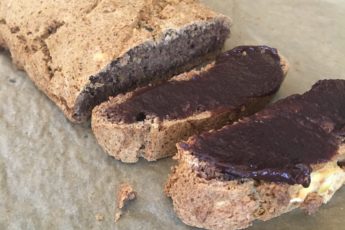If you didn’t know what’s happening with the world’s favourite carbonated sugar-laden drink that immediately makes you think of Christmas and polar bears, then keep reading. Wow do they really know how to pull at your heart strings… I can tell you those aren’t the images I am thinking of when Coke comes to mind!
Where does Coke, a nutritionally absent beverage fall within the glycemic index? Does Coca-Cola’s already massive sugar content get a health pass because of a simple reduction in the amount of the high fructose corn syrup used in it’s production
Boy do I hate when big influential brands like Coca-Cola come out with something like this that just screams Health Washing! However on the flip side, I love the fact I got called in on a whim as the expert yesterday by Global News Toronto to shed some light on the matter!
So here’s the deal. Coca-Cola is making a new, low calorie and low sugar Coke. This may seem like a “good idea” in their fizzy eyes, in an effort to make Canadians healthier. However it does not solve the all the detrimental health effects (obesity, diabetes, cancer) that high glycemic sugar sources such as Coke has had on the health of Canadians and the rest of the world.
This “New Coke”, with 8% less calories and one teaspoon less sugar, will be more like other Cokes around the world, so they say. North America, and namely Canada, has made things sweeter and is now trying to streamline Coke to make it like the rest of the world. Well that sounds like a load of &$#@&$*@*!!! Why are sugar levels higher in Canada to begin with? And more importantly, the real question is why are companies like Coca Cola still in business with the knowledge that we have on how poisonous sugar is for the body.
Coca Cola has admitted that as result of the reduction in sales over the last year, they wanted to try something new as a “cost saving measure to unify their recipe”. I was thrilled to read that Canadian consumers are finally waking up and steering away from toxic drinks like Coke among other sodas. The reduction in sales is obviously showing a new trend and one we should embrace rather than find new strategic ways to win back customers.
So this whole change in Coke’s image may be positioned (“even though no marketing campaign is in place”) to make people feel better about consuming pop, however a 20 calorie difference is not the answer. Sugar is still sugar and empty calories are still empty calories. The glycemic load of these calories is beyond what we as a species were ever meant to consume.
Less sugar in Coke does not change it’s ranking on the Glycemic Index!
Manipulating the calories in a beverage is also not the full picture, there is a very well formulated chemical process involved in making a can of Coke and it is far from natural (caramel colour, phosphoric acid, carbonated water, caffeine, corn syrup). Even though Coke claims this is not a marketing tactic, it is still a very aggressive move to increase their sales and keep their brand loyalty.
What I love most is this statement here by Coke “These new initiatives are the latest in Coca-Cola Canada’s efforts to reduce the overall beverage calories in the Canadian diet and to provide consumers with information and resources to lead active, balanced lifestyles”.
If one is looking to make changes in their health, then looking towards a diet based on plant-based whole foods is the right start. This means the exclusion of all sweetened un-natural beverages including Coke – not just a smaller bottle with less calories and sugar.
If you want the real low down on how to curb your sugar addiction, find alternatives to refined sugar food that spike your glycemic load and how to balance your blood sugar levels, then listen to these episodes from The Ultimate Health Podcast now!



